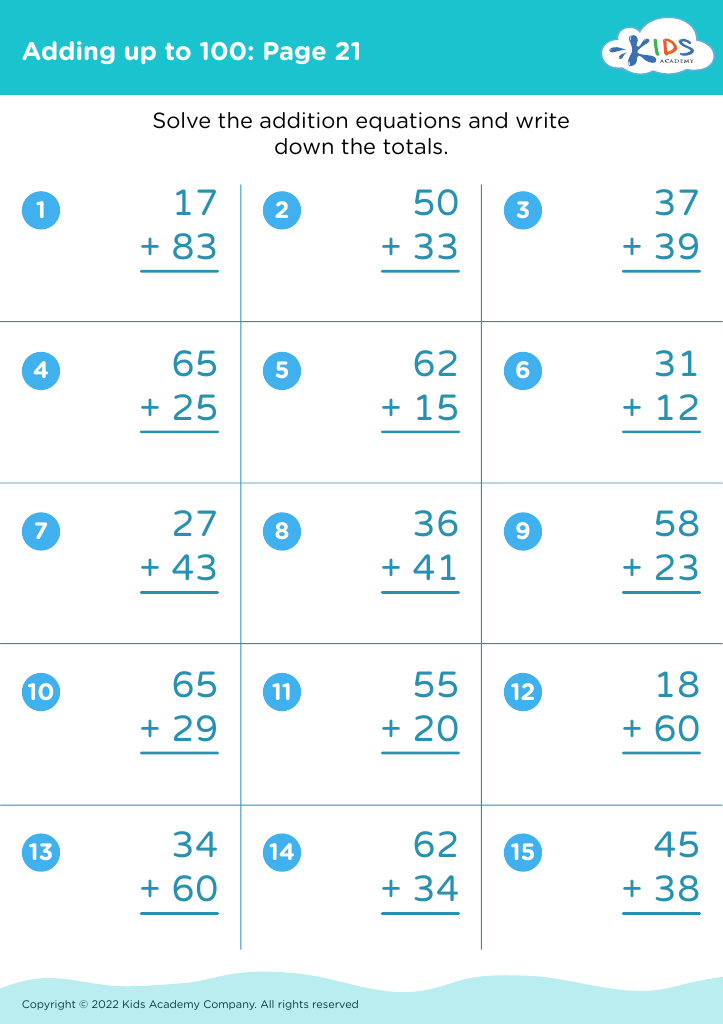Enhancing problem-solving abilities Adding up to 100 Worksheets for Ages 5-7
3 filtered results
-
From - To
Enhancing problem-solving abilities through our "Adding up to 100 Worksheets" for ages 5-7 is designed to make learning math enjoyable and effective. These engaging worksheets help young learners strengthen their addition skills while fostering critical thinking and analytical abilities. Perfectly aligned with early grade math standards, they offer various exercises that encourage kids to solve problems and enhance their mathematical understanding. Whether used at home or in the classroom, these worksheets provide a comprehensive approach to building foundational math competencies, thereby boosting confidence and proficiency in young minds. Start your child’s math journey today with our expertly crafted resources!
Enhancing problem-solving abilities and boosting proficiency in addition up to 100 for children aged 5-7 is crucial for multiple reasons. First and foremost, these skills lay a foundational framework for future academic success. Early math skills are strongly correlated with later achievements in mathematics and reading, positioning children for greater academic trajectories.
Problem-solving fosters critical thinking and analytical skills. When children engage in problem-solving, they learn to approach challenges creatively, think out of the box, and develop resilience by trying multiple solutions. These abilities are essential not only in academics but in everyday decision-making and life situations.
Adding up to 100 broadens a child's numerical comprehension and fluency, instrumental for more advanced mathematical concepts. It ingrains a sense of number magnitude, place value, and the ability to perform more complex computations confidently. Moreover, math problems that involve adding up to 100 often embed real-world scenarios — such as counting money, measuring, and understanding time — making the practice directly relevant to their daily lives.
By prioritizing these skills, parents and teachers facilitate a well-rounded cognitive development. It build’s a child's confidence in their abilities to tackle academic and personal challenges proactively, making them more adept learners and problem solvers in various aspects of life.








%20(1).jpg)












